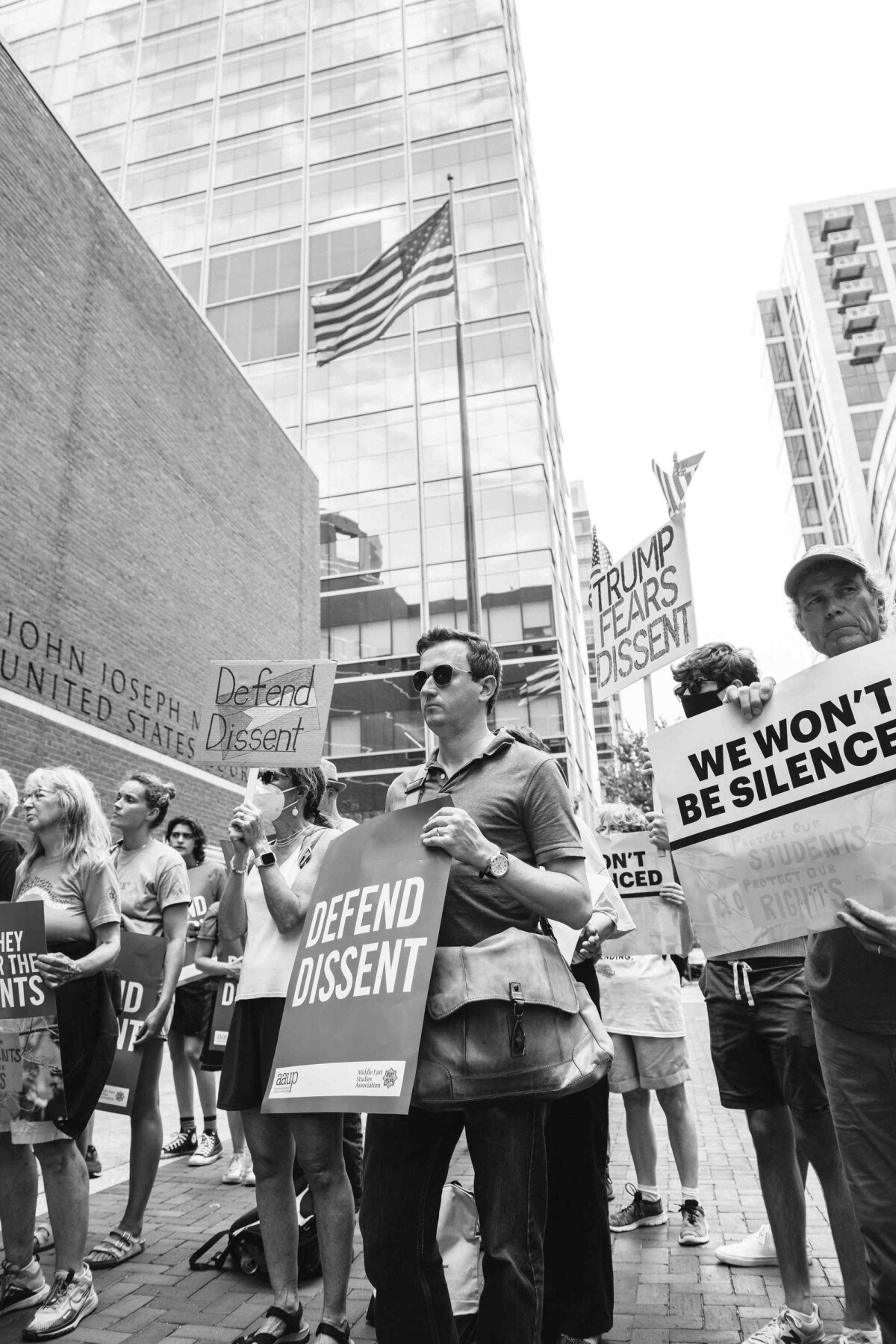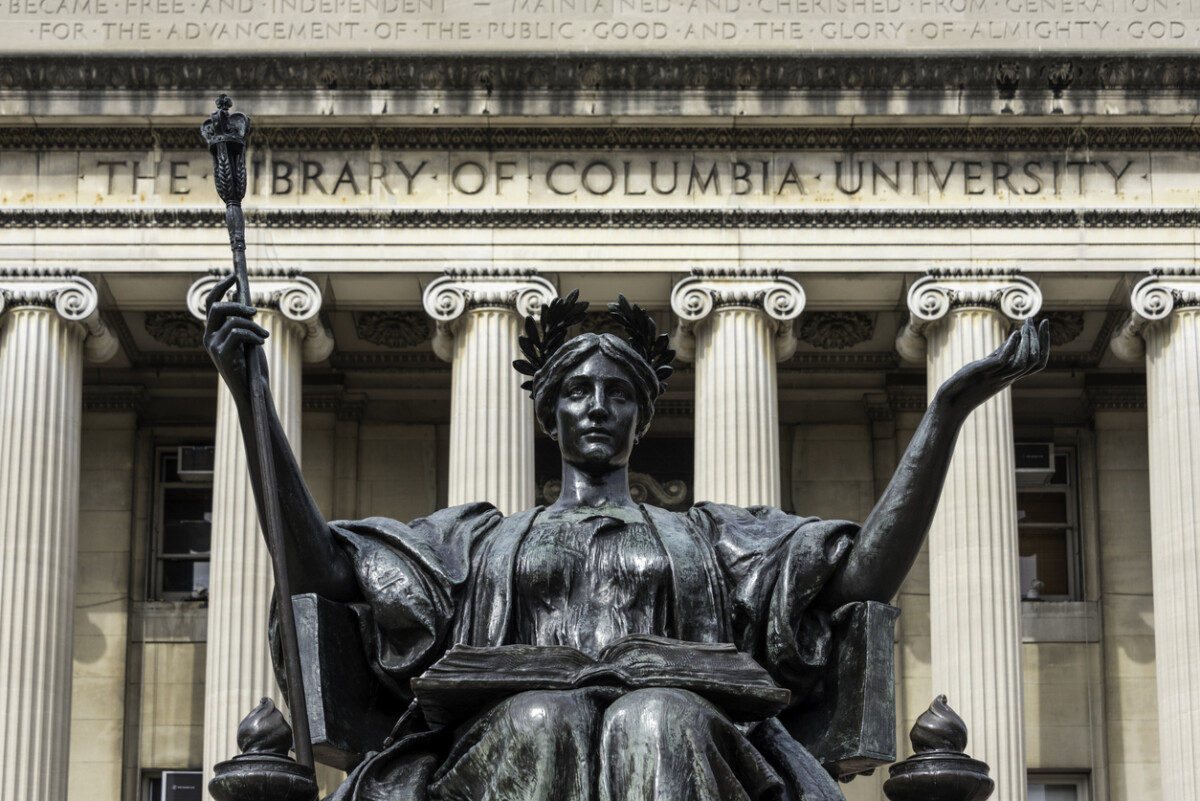Jameel Jaffer
Executive Director, Knight Institute

Jameel Jaffer is the executive director of the Knight First Amendment Institute at Columbia University. Under his leadership, the Institute has filed precedent-setting litigation, undertaken major interdisciplinary research initiatives, and become an influential voice in debates about the freedoms of speech and the press in the digital age.
Until August 2016, Jaffer served as deputy legal director at the ACLU, where he oversaw the organization’s work on free speech, privacy, technology, national security, and international human rights. He litigated many significant post-9/11 cases involving human rights and national security, including cases relating to surveillance, secrecy, censorship, interrogation, detention, and extrajudicial killing. He led or co-led litigation teams that compelled the Bush administration to disclose the “torture memos,” compelled the Obama administration to disclose the “drone memos,” and compelled the National Security Agency to abandon its dragnet surveillance of Americans’ call records. He also played a major part in the ACLU’s decision to take on the representation of Edward Snowden. The New York Times described one of his transparency cases as “among the most successful in the history of public disclosure.”
Jaffer’s writing has appeared in The New York Times, The New Yorker, The Washington Post, and Foreign Affairs. He is an executive editor of Just Security, a national security blog, and his most recent book, The Drone Memos, was one of The Guardian’s “Best Books of 2016.” In recent years he has delivered the inaugural Peter Zenger Lecture at Columbia Journalism School; the Or’ Emet Lecture at York University’s Osgoode Hall Law School; the Eva Holtby Lecture on Contemporary Culture at the Royal Ontario Museum; and the Salant Lecture on Freedom of the Press at the Harvard Kennedy School’s Shorenstein Center. He was also the honoree at the Columbia Law Review’s annual banquet in 2015, and the Harvard Law Review’s annual banquet in 2022. He was named to Foreign Policy’s “Top 100 Global Thinkers” list in 2012, received the Vox Libera award from Canadian Journalists for Free Expression in 2015, and was inducted into the Newseum’s Freedom of Information “Hall of Fame” in 2016.
Jaffer is a graduate of Williams College, Cambridge University, and Harvard Law School, where he was an editor of the Harvard Law Review. He served as a law clerk to Honorable Amalya L. Kearse of the U.S. Court of Appeals for the Second Circuit, and then to Right Honorable Beverley McLachlin, Chief Justice of Canada. In recent years he has served on the board of the Pierre Elliott Trudeau Foundation, the advisory board of First Look Media’s Press Freedom Litigation Fund, and the advisory board for the Center for Democracy and Technology. He has also served as a commissioner of the Canadian Commission on Democratic Expression and as a member of the Aspen Institute Commission on Information Disorder. He was a distinguished fellow at the University of Toronto’s Munk School from 2016 to 2021 and a fellow at the Open Society Foundations in 2013.
Contact
Selected Projects
-
Knight Institute v. Trump
A lawsuit challenging President Trump's blocking of critics on Twitter
-
Doc Society v. Blinken
A lawsuit challenging the State Department’s social media registration requirement
-
Edgar v. Haines
A lawsuit challenging the government's system of "prepublication review"
Selected Work
-
What Matters Most in the Supreme Court’s Upcoming Social Media Cases
The New York Times
-
Judging in Secret
The New York Review of Books
-
There’s a Problem With Banning TikTok. It’s Called the First Amendment.
The New York Times
-
Reclaim the First Amendment — Harvard Law Review Address
Harvard Law Review

Contact
Selected Projects
-
Knight Institute v. Trump
A lawsuit challenging President Trump's blocking of critics on Twitter
-
Doc Society v. Blinken
A lawsuit challenging the State Department’s social media registration requirement
-
Edgar v. Haines
A lawsuit challenging the government's system of "prepublication review"
Writings & Appearances
-
-
Deep Dive
The U.S. Supreme Court’s TikTok Ruling is a Scandal
The decision means TikTok now operates under the threat that it could be forced offline with a stroke of Trump’s pen
-
-
-
Deep Dive
The Trump Administration’s Roundup of Student Protesters Is Genuinely Shocking
These are the kinds of scenes we expect to see in the world’s most repressive regimes. And they won’t stop at foreign students.




